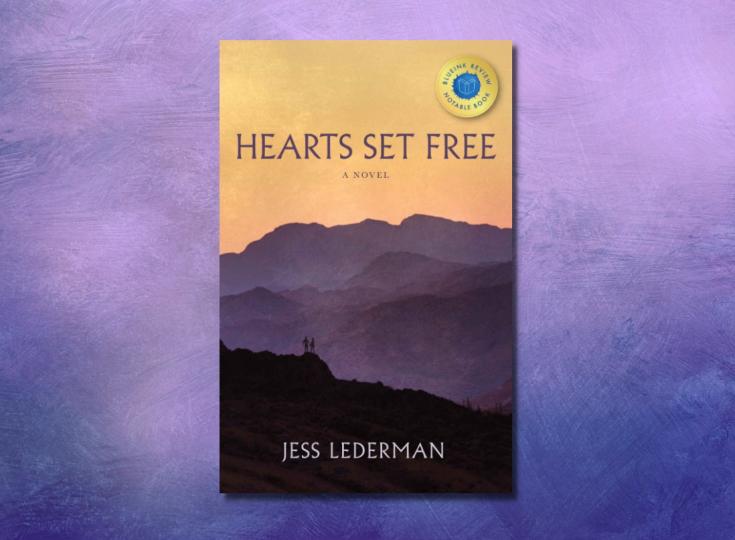Editorial Review: Hearts Set Free by Jess Lederman

In this sweeping novel that is both historical and Christian fiction, Lederman weaves together various stories spanning nearly a century and thousands of miles.
In the early 1900s, young Luke and his mother Yura from Alaska, leave their home to travel throughout the United States in search of Yura’s unfaithful husband—a journey fraught with dangers, unexpected turns, and eye-opening experiences. Meanwhile, David Gold is a young boxer being mentored by the famous heavyweight champion Jack Johnson. In his attempts to reconcile his faith with his desire to fight, he becomes known as the Pummelin’ Preacher, giving sermons in churches and fighting opponents in the boxing ring.
A third major storyline appears in 2011, as Tim and Joan, producers of the anti-religious program Science Cable TV, head to Las Vegas to uncover a story with the help of an elderly Luke. Las Vegas serves as the main setting for the majority of the book, for it is where David finds his purpose as a full-time pastor, where Luke and Yura end up in their search for Luke’s father, and where Joan and Tim are confronted with situations that make them question their hedonistic way of life.
Fans of historical fiction will find plenty to enjoy here. Real historical characters, such as boxer Jack Johnson and the Belgian priest and scientist Georges Lemaître, are cast alongside fictional characters, shedding light on historical figures and events that are not particularly well-known but fascinating nonetheless. The urbanization of Las Vegas, which plays a central role in the book, is another intriguing topic—thousands settled in the nearby desert during the Great Depression to help construct the Hoover Dam. Lederman writes using vivid details and rich dialogue that you can practically hear, which pulls you right into the story. The book’s plot is compelling but not always believable, and it seems to take a backseat about halfway through as the author focuses more on Christian doctrine.
And indeed, this book is first and foremost Christian fiction. The characters are refreshingly diverse in terms of their relationship with God. There’s David, who struggles to understand God’s will for him; Luke and Yura, who become converted to Christianity in adulthood; Joan, who yearns to rekindle the faith of her youth; and Tim, who is an adamant atheist. In other words, readers will likely be able to find themselves at least somewhere in this book’s wide range of characters. Also, the book touches on pressing and complex Christian topics, such as the dichotomy between religion and science, how the sovereignty of God still allows for the existence of evil, and what forgiveness entails. The conclusions eventually reached by the characters are profound and memorable. For example, the science versus religion debate is summed up in the phrase, “One gives us a glimpse of the machinery behind the scenes, backstage; the other tells us the plot of the play.”
The book also features an ever-present, subtle criticism of sin, yet an everlasting stream of mercy for sinners—even the most vile ones. “Maybe God doesn’t want to hear a drunken woman’s prayer,” one character says. “Perhaps they’re an insult to heaven.” To this, Luke tenderly replies, “The Son of God gave up his throne to save us from our sins … So then, wouldn’t he yearn to hear a sinner’s prayers?” The juxtaposition between good and evil is at times overdone but effective nonetheless.
Hearts Set Free can be summed up as one part history, one part mystery, and three parts Christianity. And even with its few weaknesses, it will surely enlighten and inspire its Christian audience.





